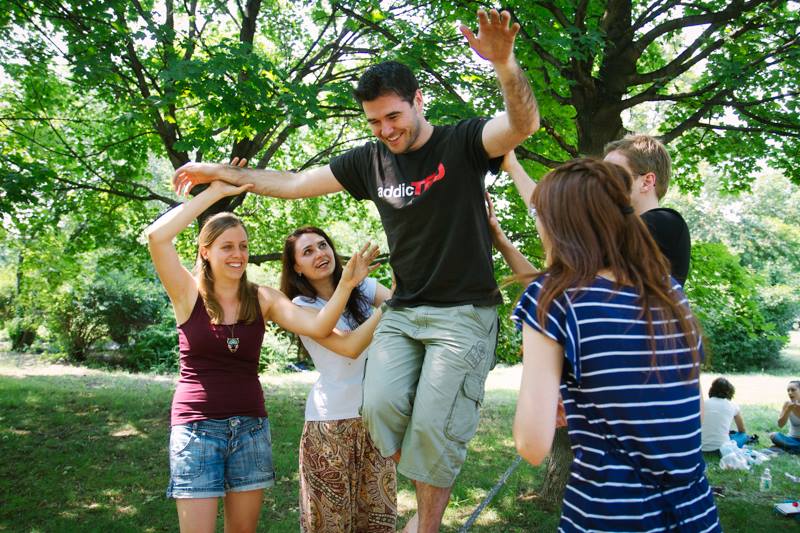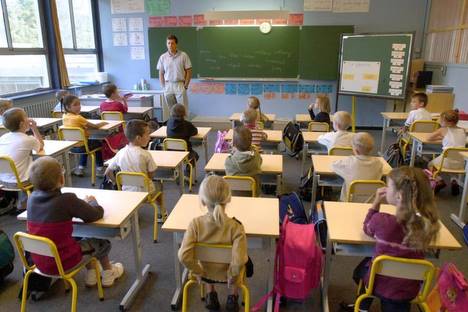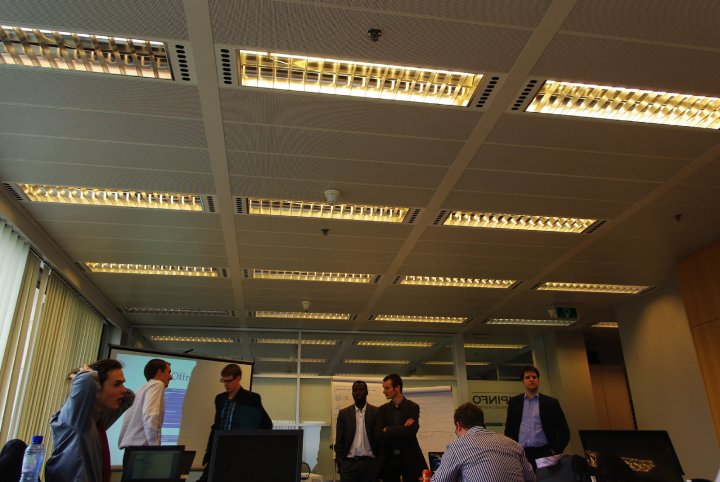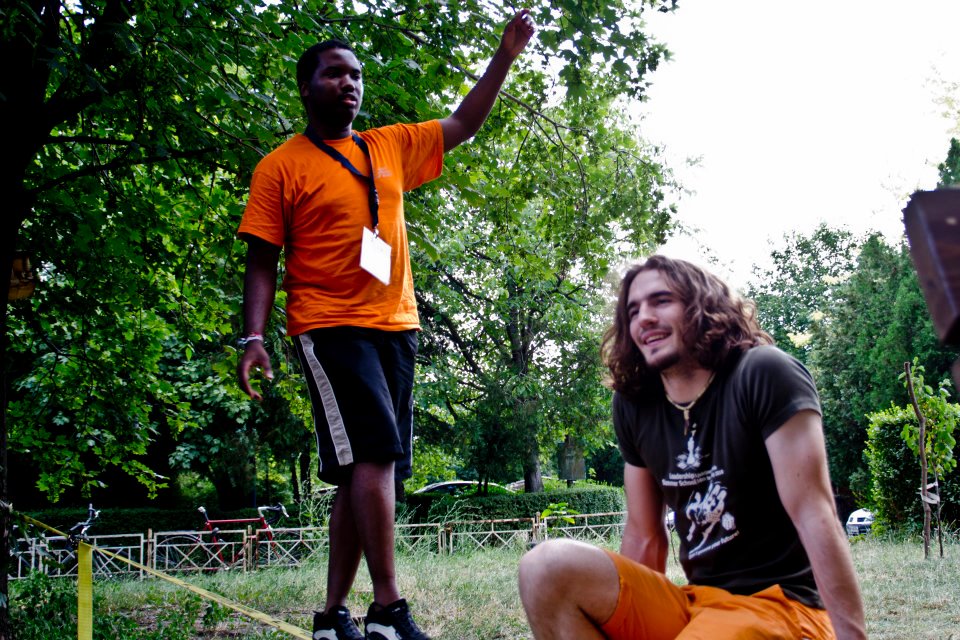 This picture has been taken last Summer. You can see a friend of mine trying to make some steps on a rope. He is not sure of himself and you see some other fellows, walking along side, encouraging him, looking after him and, when needed, landing a hand or two to help him find his own balance. Despite that help, my friend on the rope is the only one making the effort as he wants to succeed.
This picture has been taken last Summer. You can see a friend of mine trying to make some steps on a rope. He is not sure of himself and you see some other fellows, walking along side, encouraging him, looking after him and, when needed, landing a hand or two to help him find his own balance. Despite that help, my friend on the rope is the only one making the effort as he wants to succeed.
Feedback, or information from the past influencing behaviour in the future, is one of my favourite concept together with Learning and Group work. Even though I do practice it since before I was conscious, I had to wait University level to embrace it for what it is, something to be sought after and treasured liked gold.
Feedback has always been the information I got when interacting with elements or people or things that were not-me. From that interactions, I would learn something new and thus, most of the time, adapt my behaviour or habits to match the new reality. I will save you the “walking is cool my boy”, “fire burns”, “don’t cry dogs are friends”, “running into a wall hurts” and “we can do more (mess) together than alone, and it’s funnier” realisation moments.
 When I started the big School, in an environment like the picture, and for the following decade, we started to get an insidious message. Interacting with each other in order to learn was bad (disruptive was too long words for our young minds). In some cases, it was even called cheating.
When I started the big School, in an environment like the picture, and for the following decade, we started to get an insidious message. Interacting with each other in order to learn was bad (disruptive was too long words for our young minds). In some cases, it was even called cheating.
How did I realise that? Here were few hints:
- Talking with classmates during the class was mostly not allowed.
- There was only one correct answer to questions and it was coming from the teacher (or his/her teaching materials)
- Asking too many questions was the sure way to be tagged as boring and often the teacher was the tagger
- Communicating with other class mates when doing your homework was reducing your marks
- Not sitting on the first 2 or 3 rows was reducing your intelligence
- You should not help anyone when you know the answer
Therefore, throughout Primary and most Secondary school, group work per se was quite rare and mainly related to side activities or “fun” ones like Sports. Serious labelled subjects were usually not associated with it. Most of the work, as tedious as it might have been, was meant to be solitary.
There were exceptions, of course, I had the privilege to meet amazing Teachers who integrated interactions into their learning, it’s partly thanks to them that I can hold this blog on-line and in a foreign language. Though they were outliers rather than the norm, which I find disappointing.
 One of the key factors which made me choose my University education path was the level of interaction I would have with things and people. I discovered, by then, that interaction was my path to personal development. It took some time though I managed to prove to myself that developing projects with others was not meant to be doomed by low grades.
One of the key factors which made me choose my University education path was the level of interaction I would have with things and people. I discovered, by then, that interaction was my path to personal development. It took some time though I managed to prove to myself that developing projects with others was not meant to be doomed by low grades.
It lead to some interesting breakthrough:
- There were more right answers than just one to most questions,
- Questions having only one answer were badly designed (and boring => 4+1=? vs _+_=5),
- Pooling people talents could lead to mesmerizing outcomes
- We could achieve great results.
- It was fun!!!
- And, in many courses, and especially during my Master program, group work was treasured, sought after.
This post came from the realisation that for many years, children are taught that asking for help, bouncing ideas with other kids, playing at school, engaging with professor, and together, challenging what we think we know about things, are all bad. That only lazy, cheater or slackers ask for help.
And then we discover that most of the 20th and 21st companies who are making the headlines, who survived various crisis internally and externally, are the ones where they implemented processes that foster teamwork, collaboration, feedback and learning. Some of the most paid job are related to analyse and act upon feedback from customers, some even anticipates needs we didn’t know we had.
I can only encourage you to surround yourself with amazing people. People who will support you, love you unconditionally. Walk along with you, call you when you feel down, mourn your loss with you and provide the magic hug you need.
Friends, relatives or colleagues who will challenge and make you challenge your assumptions and certainties, who’ll encourage you to go further, to better, to become your best self, though not necessarily at the same time as previously.

When I share my ideas and you use them, it’s not cheating. By taking the time to consider their values and deciding to use them fully, partly or not at all, you are encouraging me to produce more, to develop better ones or to go further down the original line of thoughts. Till the day, I’ll successfully walk that rope, by myself over a canyon as part of an amazing day.
We ought to reclaim feedback as a way to collectively move forward and help each other reach personal milestones. We can learn from each other and develop amazing solutions to world challenges and any form of regulation of any kind should support that trend as there will be enough wealth generated even for the greedier ones.
Side note: for rope walking, a fellow like Demjan Vester can be helpful.
